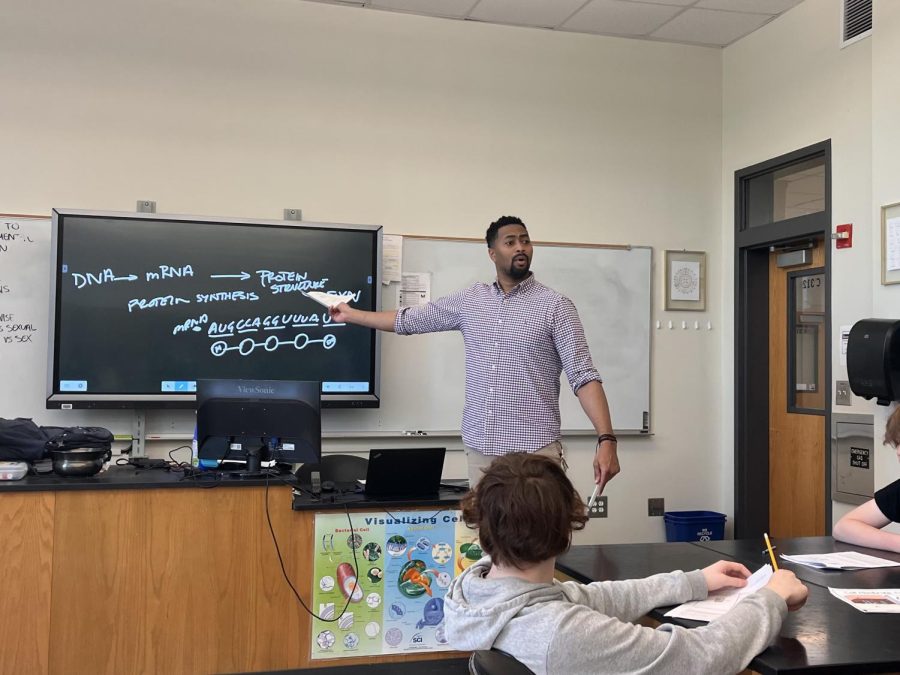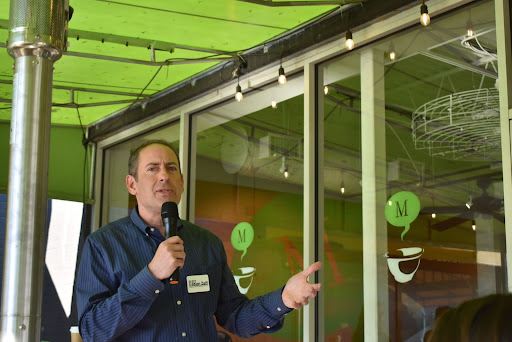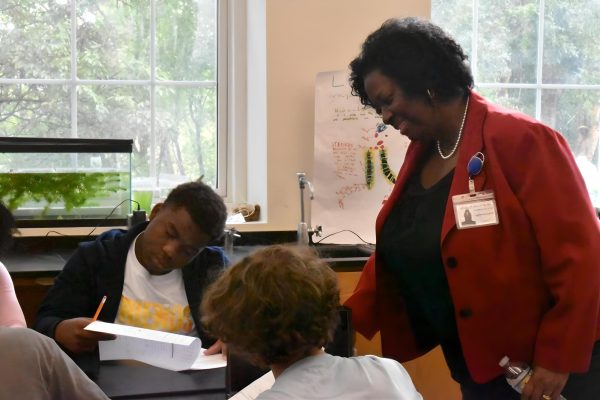Administrators experiment with new grading system prototype
Science teacher Roderick Hill instructs freshman biology class in preparation for unit exam, which will be the only grade for their last unit under this new system.
May 1, 2023
Administration has tested a new grading system to tackle grade inflation by eliminating all grades that are not in the summative category.
The initiative was led by the Design Thinking Cohort, Midtown’s chapter of Atlanta Public School’s new concept with the goal of developing a coalition of teachers who develop an applicable prototype to solve a school-specific problem. The results of trials this year will potentially lead to full implementation of this grading system in the fall of 2023.
Fashion teacher Kottavei Williams has led the fashion program for several years and represents teachers in this cohort.
“[Midtown’s] particular problem we identified was grading equity and inflation,” Williams said. “We began to brainstorm how to solve that among different groups socially [and] economically, by race [and] by gender. We considered how to equalize grading from a perspective where all teachers are grading on the same type, scale and level, so that there’s equity to ensure that no one student may have more opportunity because of things like financial background, and we can end up leveling the playing field.”
Members of the Design Thinking Cohort believe formative grades, including homework, classwork assignments and small projects, leads to disparity, especially along socio-economic lines. Biology teacher Roderick Hill is one of the leaders of this project and agrees that formative grades do not reflect students’ capabilities.
“A lot of times the formative assessments don’t necessarily determine if the student knows something or not,” Hill said. “For example, if a student doesn’t do homework, they may have had other commitments like work or some kind of issue outside of school that didn’t allow them to do the work. Some kids have to pay bills and are forced to work their job. We don’t want to focus on any kind of subjective, arbitrary idea of what the student knows or may not know; we don’t want to assess motor behavior.”
Multiple classrooms in the science department tested this new grading system. Hill is one of the teachers who spearheaded the system in his ninth grade biology courses, and he is gathering feedback from students.
“It has its pros and cons,” Hill said. “I’m not really leaning towards either option. Either way, I think that there is a benefit in having formative assessments count in the gradebook, because it keeps students on their toes to a degree that keeps them motivated extrinsically, but this new system could motivate intrinsically. Although, I think there’s some kids that won’t do the assignments.”
Freshman Julia Barton is in one of Hill’s biology classes and has already seen an apparent shift in the classroom environment.
“Even though we haven’t had [the new grading system] for a while, I’m already noticing changes with my and my peers’ work ethics,” Barton said. “I was working on an assignment, and I knew it wasn’t going to go in the gradebook, so I just didn’t try as hard as I would’ve [with the old grading system]. I feel like there are a lot of negative effects that this system could have because it would only really work if every student is really motivated to get their work done. This will leave students failing their final tests.”
The Design Thinking Cohort has the ability to propose this prototype for implementation with the data gathered from trials this semester. If approved by Principal Dr. Betsy Bockman and the Atlanta Board of Education, the new grading system could go into effect schoolwide.
“This [approval from the school board] is necessary because even outside of us, if we come up with an effective plan, it still has to adhere to the standards of Georgia and the standards of the APS school system,” Williams said. “So it starts here, and then it will have to go up that chain approval.”













